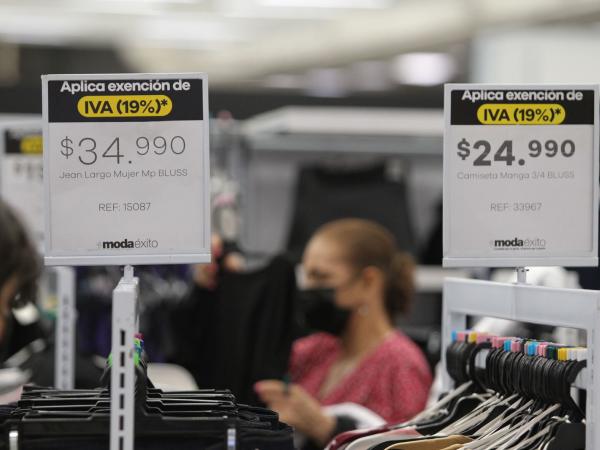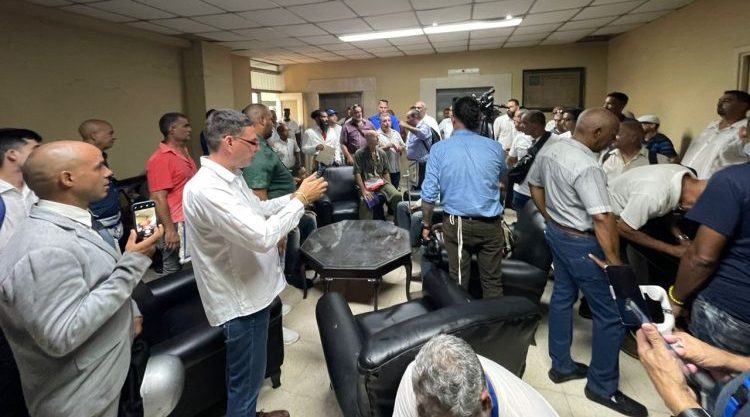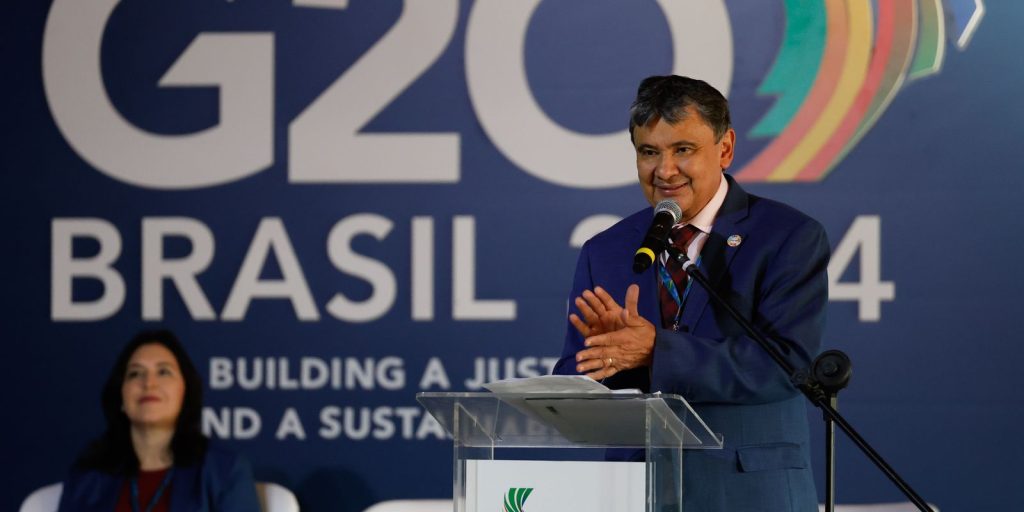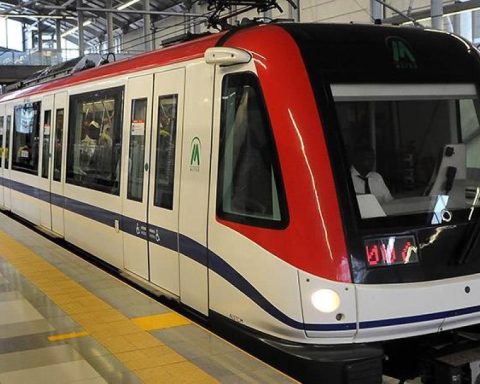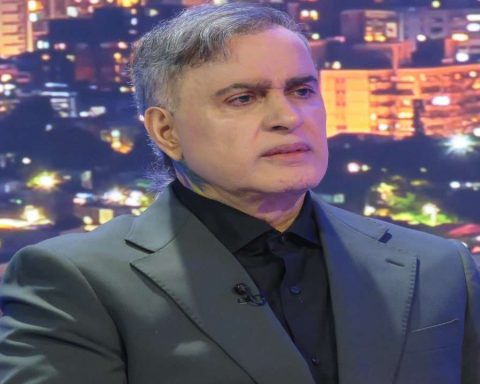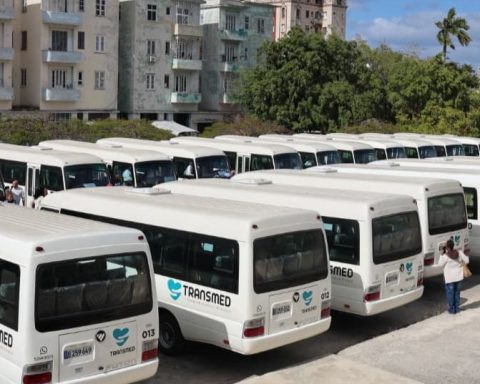One of the days that many Colombians miss, without a doubt, is that of the ‘Days without VAT’ that were born as a response to face the fall in consumption that occurred during the pandemic and that were withdrawn by this Government under the argument that they do not generate greater contribution to economic growth, but it does impose a heavy tax burden on the nation’s accounts, which are not going through a good moment.
From the Congress of the Republic a bill was generated so that these days return and after completing all the procedures required by the regulations, it was approved and presented to President Gustavo Petro for his sanction, who this week He announced that he would not give his approval for it to become law and presented his objections to the legislative branch.
VAT-free day
Cesar Melgarejo. THE TIME
In a document prepared by the Ministry of Finance and signed by President Gustavo Petro, it is noted that during the passage of this project through Congress, the Government’s comments on the fiscal impacts that adopting this measure will entail were not taken into account, in addition to the fact that it does not have a plan to cover the losses that the exemption to national accounts will generate.
Mixed opinions
As soon as this news became known, a strong debate It was generated in the country by those who maintain that the ‘Days without VAT’ could not return and those who assure that the objection to the sanction of the law will end in a loss of productivity for industry and commerce, which are not doing well at the moment and required this help to get back on track.
Read also: Economic situation worsens merchants’ confidence
First of all, the professor of the Javeriana University, Jorge Restrepo, said that what the Government did is a good decision, since “We must reduce all tax expenditures, avoid new ones like this “Day without VAT” and even more so at this time of weak economic activity.”
The former Minister of Finance, Juan Camilo Restrepo, has a very similar opinion, who points out that these days have a high fiscal cost for the country and in the long run end up benefiting mainly imported products, leaving aside the local industry, which at this moment is the one that requires special attention.

VAT-free day
TIME
“President Petro’s announcement that he will object to the law that revived the ‘Days without VAT’ is one of the few sensible decisions that this Government has made. Reviving them, at a time when, according to a report from the Comptroller’s Office, tax collections have plummeted and are at a level lower than before the pandemic, is nothing more than nonsense.”.
This celebration also took place in Congress, where sectors close to to the Government, they stated that having given approval to this norm, in addition to being a “populist” idea, would end up generating a severe impact on the country’s economy, especially from sectors such as tax collection.
María del Mar Pizarro, representative to the House, recalled that “In 2023, the impact was at least $631 billion, according to the Ministry of Finance. A little more than what the 150 Solidarity Supply Points of the Zero Hunger Program cost us. In addition, consumption does not increase, it only changes its timing, since on that day we buy what we would buy on other dates, such as Christmas.”.
Read here: Reactivation with dialogue and without barriers, a proposal from the private sector to revitalize
Double standard
While there were those who celebrated the objection to the return of the ‘Days without VAT’, from other sectors serious criticism was launched against President Gustavo Petro and the Ministry of Finance, who were blamed for the fact that this does not give the boost that the economy needs. much needed amid the slowdown it faces.

Colombians woke up early for the second day of the VAT-free day of 2022. Images of buyers at Alkosto on 68th Street in Bogotá.
Mauricio Moreno
Lisandro Junco, former director of the Dian, said that the days without VAT were a strategic idea for the reactivation of the Colombian economy, generating well-being for those who could access certain products such as household appliances or necessary goods, which they normally would not have been able to buy.
“They had a fiscal impact, for each day, of $150 billion, that is, “In three days, $450 billion was collected and in three years, nearly $1.5 trillion. However, this was offset by the collection of other taxes, such as the withholding tax on the new income that we, merchants, industrialists and importers, have,” he explained.
More information: Dollar opens higher on Wednesday amid corporate results presentation
This expert recalled that “the growth in income tax, added to purchases made with debit cards and credit cards, which generated a 4 per 1,000 increase, and not to mention municipal taxes such as the industry and commerce tax, which generated significant growth in these days”, also compensated, so the profit was greater than the losses.
TO @petrogustavo He is not interested in the well-being of Colombians or in recovering the economy, as demonstrated by his political and vindictive decision to object to the day without VAT.
This project does not require fiscal support because it is an optional decision at the discretion of the Executive.
But… pic.twitter.com/u1Z6k3bEW3
— Miguel Uribe Turbay (@MiguelUribeT) July 24, 2024
Likewise, for Miguel Uribe, a congressman who supported the initiative, the Government’s objection makes clear the “double standards” with which they run the country, since while they promoted projects without endorsement or fiscal concepts in past legislatures, Now they claim that they need this requirement for a law that has already been passed in Congress.
“This project does not require fiscal approval because it is an optional decision at the discretion of the Executive. But not only that, during the VAT-free days of 2020, 2021 and 2022 it was clear that there was an increase in the revenue generated by other taxes. Taking away the possibility of commerce to reactivate itself, when it has been in decline for months, Colombians are already given the option of buying products that they otherwise would not be able to, is a disgrace, to say the least.”he concluded.
The opposition warned that there is already a well-stocked path that they will respect and that regardless of whether the Casa de Nariño wants it or not, they will carry it out. in this case to all necessary instances to ensure that things are done properly.
